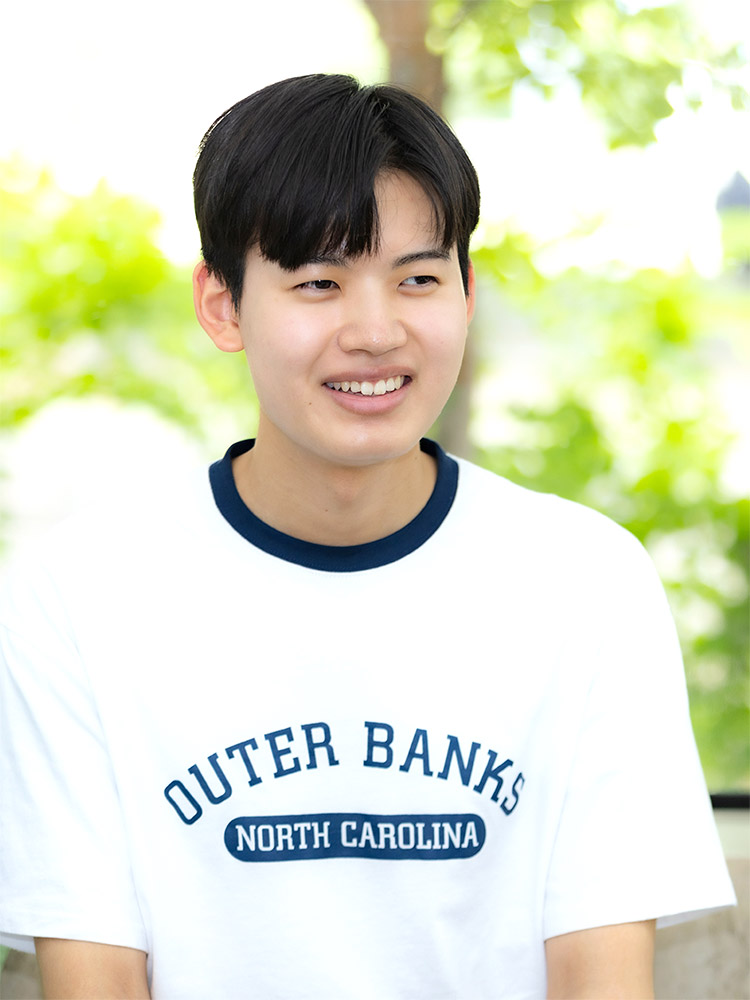Robbins Jessica Lynn
After working in the U.S., Jessica came to Japan and enrolled in FFLC to pursue a degree while learning about Japanese culture.
Japanese 2-Year Course / United States of America
Why did you decide to enroll in FFLC?
From childhood, I was very interested in Japanese culture and language and wanted to learn more about it. After I started my career at a library, I decided that I wanted to work with Japanese materials and at that point I really needed to learn the language well. The major reason I decided to enroll in this school is that I can obtain a degree here. Moreover, as I researched different language schools, including those in Tokyo, I learned that Fukuoka has many museums, a rich history, and also has a lot of greenery. These factors also led me to choose this school.
What kind of student life do you have?
I mostly try to focus on studying. In the morning, I do homework and study, and in the afternoon, I attend classes for about four hours. In the evening, I spend time studying or talking with my family. On weekends, I work one day and the other day I try to do more recreational things to experience the city. A particularly memorable experience was when I took trains and buses with my classmates to see the volcano in Aso (in Kumamoto). I had never seen anything like that. In the future, I would like to join the school’s agriculture club.
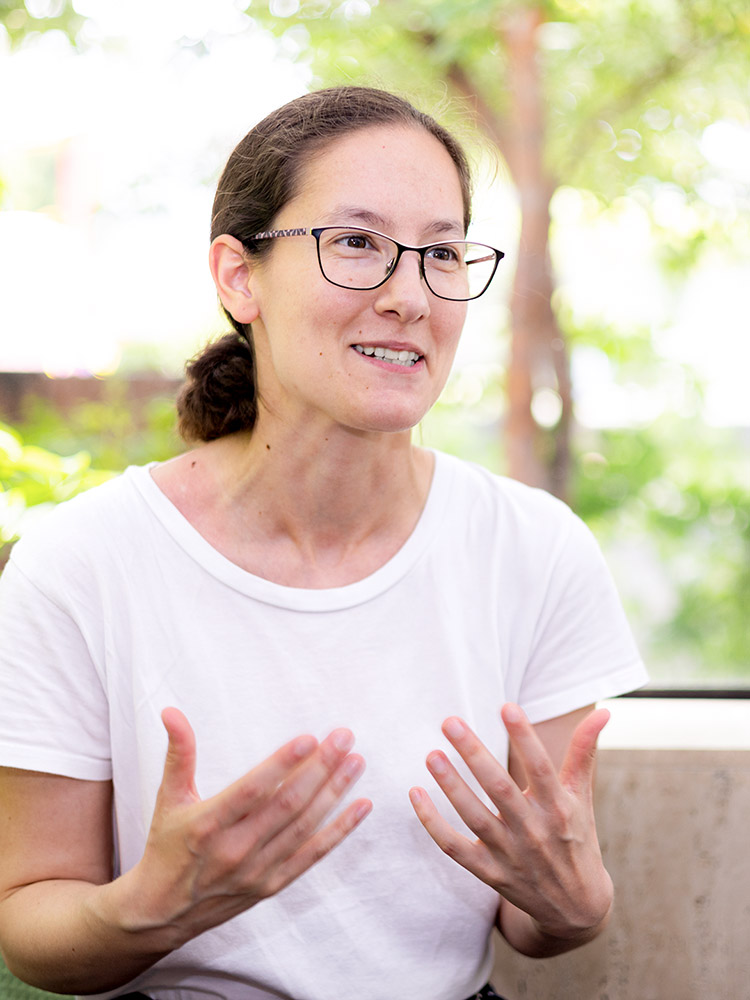
What difficulties did you face after coming to Japan?
Initially, I lived in the school's dormitory but I later moved to an apartment, and that was probably the most difficult thing so far. I had a real estate agent who helped me with the process, but still there were certain things that I could only do in Japanese, which was very difficult for me as I was not yet used to conversations. The school's office staff helped me with communication with the real estate agent and setting up gas and electricity, which allowed me to overcome these difficulties.
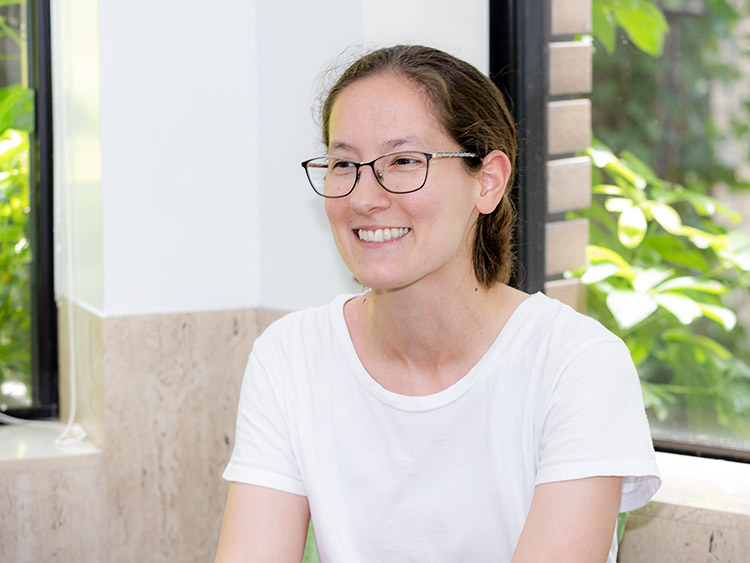
Do you have any advice for those considering enrolling in FFLC?
For a person like me, easily embarrassed and hesitate to start a conversation, getting over the initial embarrassment was crucial. Life became so much more satisfying after I was able to overcome that fear and interact with people, and start having real experiences.
Particularly when I started working, I was asked many questions by my colleagues, which gave me the opportunity to really consider how to convey my life and experiences. Even if it's scary and difficult at first, keep trying. It's absolutely worth it.
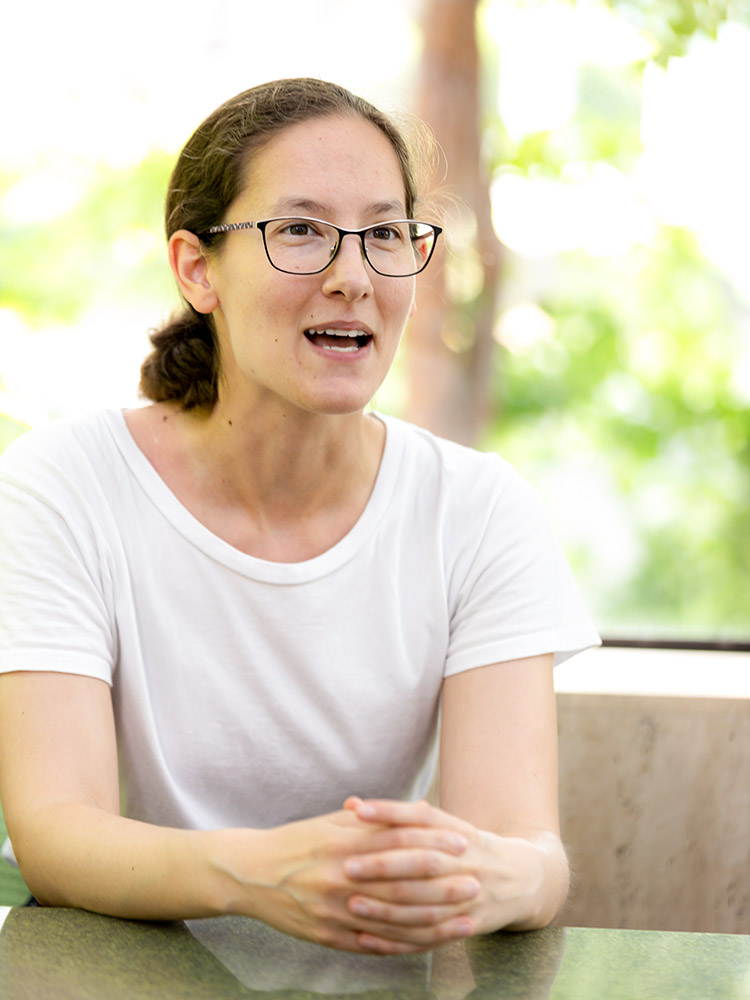
Martorell Fuster Maria Del Mar
After studying Japanese at a university in Spain, Maru enrolled in FFLC. Her goal is to become a translator in the future.
Japanese Japanese 1.5-Year Course / Spain
Tell us about your classes and school life.
My class is one of the largest Japanese classes at school. We practice listening and speaking a lot in addition to reading and writing. Speaking Japanese is particularly difficult. When writing, I can focus on grammar, but in conversation, there is no time to consider grammar because I need to come up with the answer quickly. The classes are very helpful in overcoming this as we practice conversations in different sets of situations. Also, I can always go down to the lobby floor to ask my Japanese friends for help.
What is your best memory at FFLC?
The most enjoyable moment was the entrance ceremony. Although it was my first day at school, I had a lot of fun meeting and singing along with teachers and other students. Another great memory is going to the amusement park with my classmates.
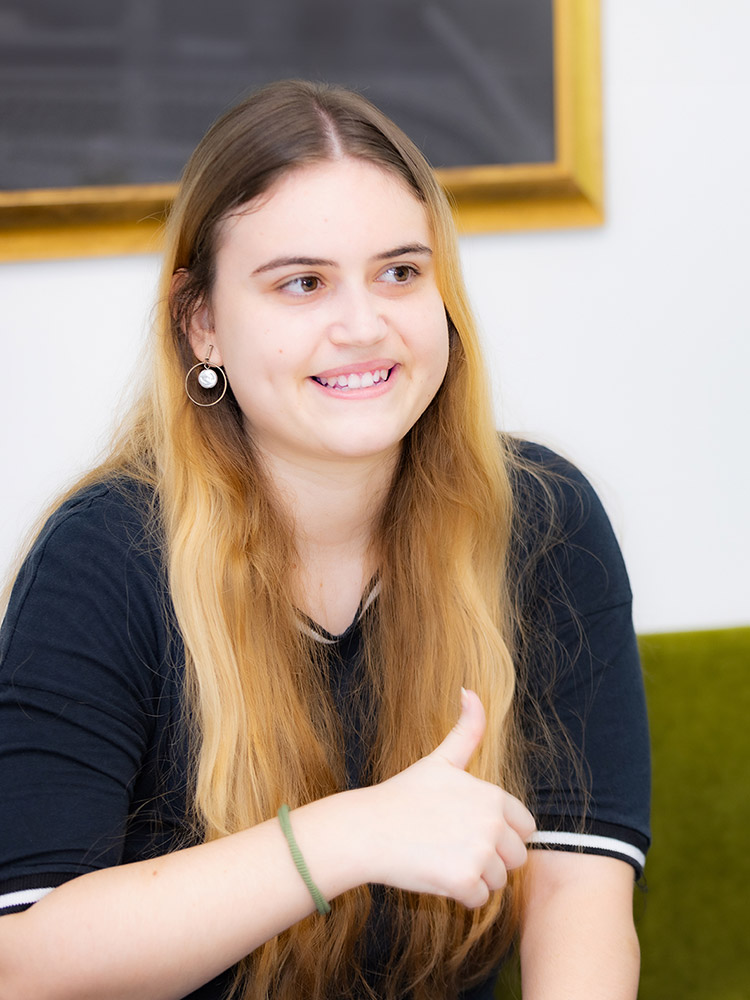
What is the area you currently live like?
I asked the school to help me find an apartment near the school. It's a very nice area, quiet, with a beautiful park. There are also many delicious restaurants. My favorite is a Korean place.What are your goals after graduation?
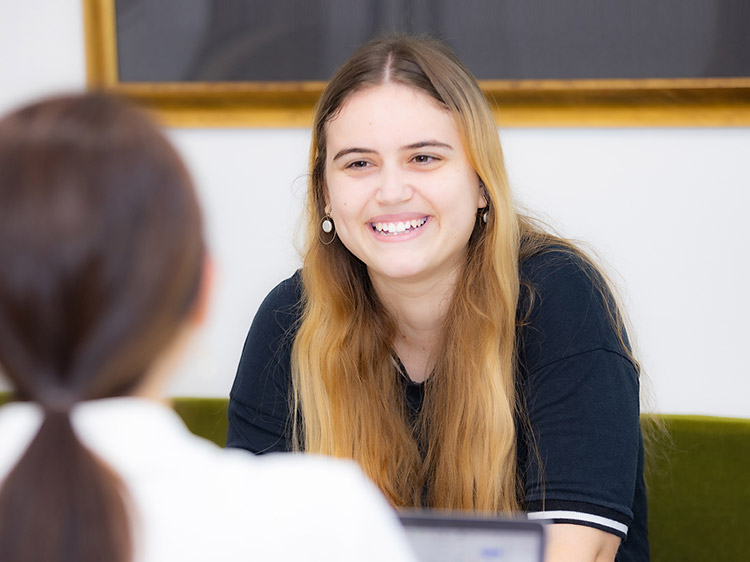
What are your goals after graduation?
I want to become a translator between Japanese and Spanish. Before coming to Japan, I worked as a translator between English and Spanish. I don't have a concrete idea yet, but I'm currently discussing it with my homeroom teacher.
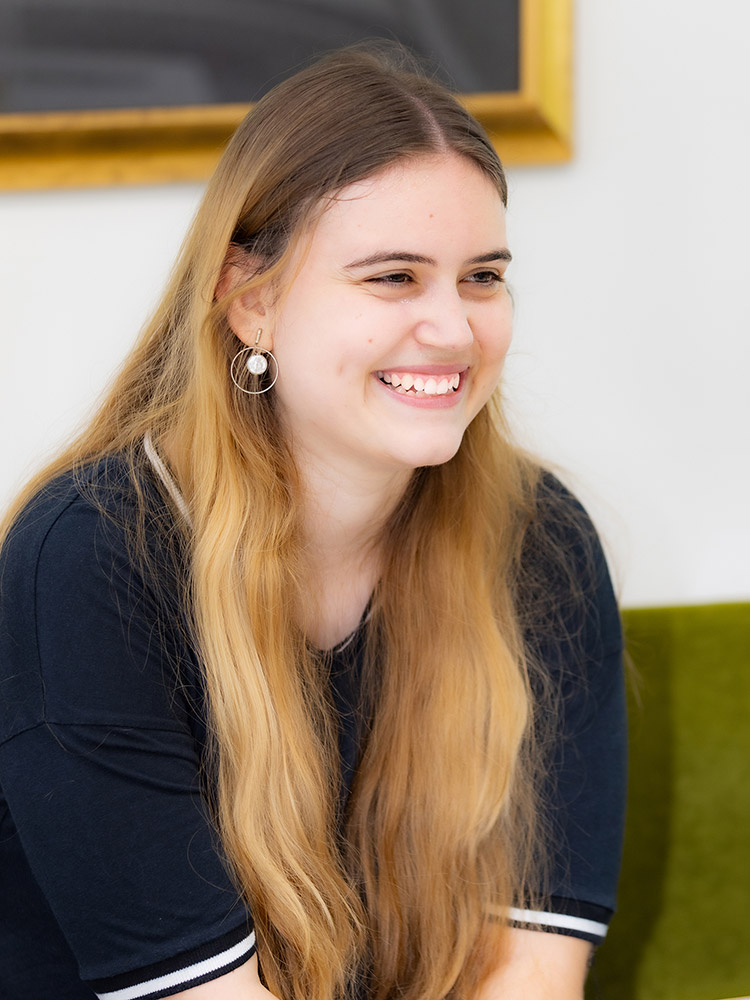
Sabir Muhammad Umair
After studying Japanese at a university in Pakistan, Sarbal enrolled in FFLC. He is particularly interested in trade and international business.
International Career Course / Pakistan
Why did you decide to enroll in FFLC?
Because of its long history and the fact that it accepts students from various countries, providing an opportunity to learn not only about Japanese culture but also about other cultures.
What kind of life are you leading?
Fukuoka is a very livable city. I have traveled to other cities like Tokyo, but Fukuoka has everything nearby, such as large parks, historical sites, and interesting places. The teachers at school are kind and approachable, and I can consult with them about everything, not just classes but also future career paths.
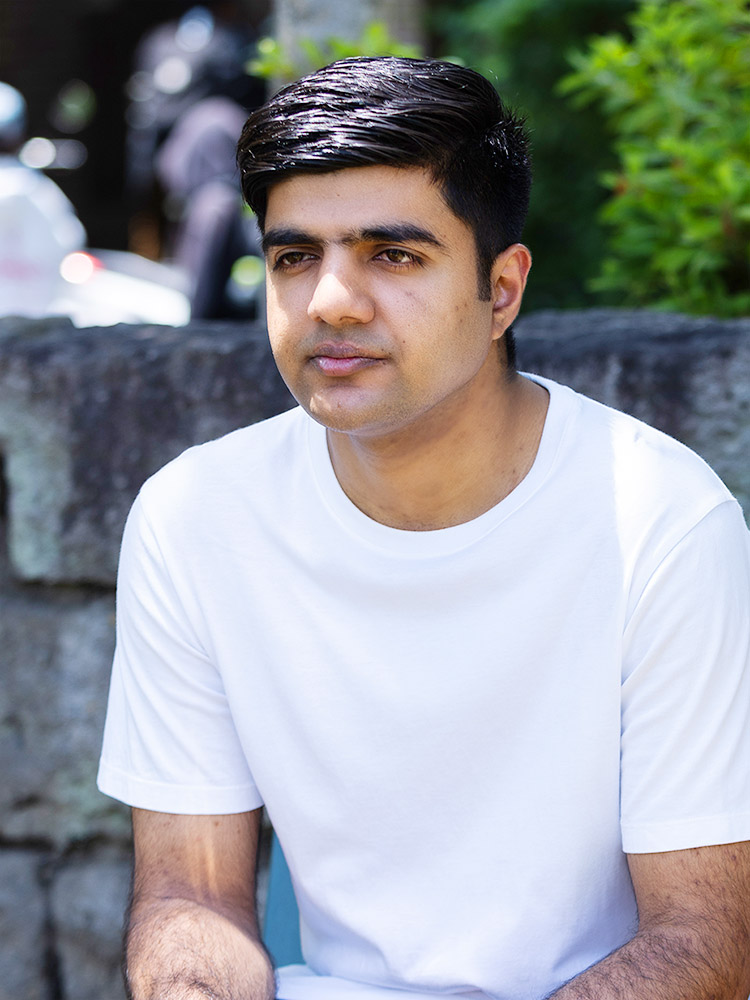
Did you adapt to Japan quickly?
At first, it was difficult to make Japanese friends. I was worried about saying something inappropriate or feeling embarrassed, so I couldn't engage in conversations. However, through meeting Japanese people with overseas experience and people from other countries at this school, I gradually overcame this. Now, I have learned to value others' experiences, thoughts, and opinions, which has helped me adjust to life in Japan.
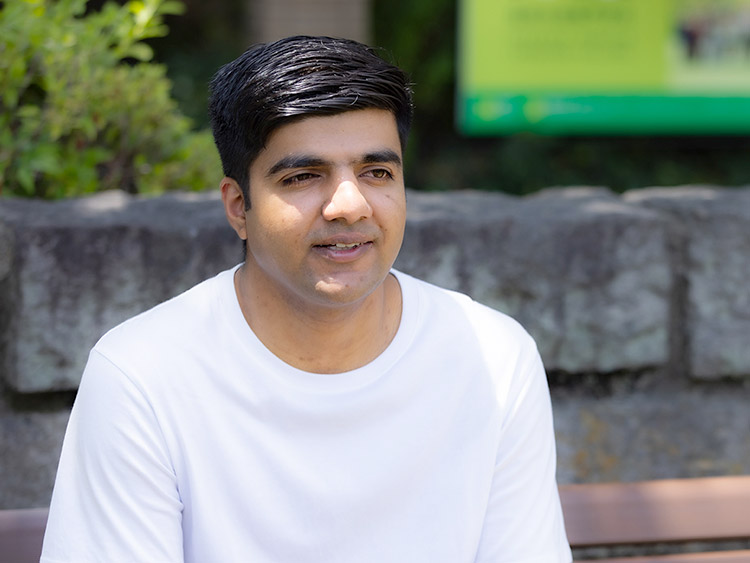
What are you studying in the International Business Department?
I am studying marketing, social marketing, and trade in Japanese. A certain level of Japanese proficiency is required before enrolling, but I think N3 level is sufficient. With a bit more Japanese proficiency, you can enroll in the advanced career course. Currently, I am job hunting, which is challenging, but I am participating in information sessions held inside and outside of school with the help of my teachers.
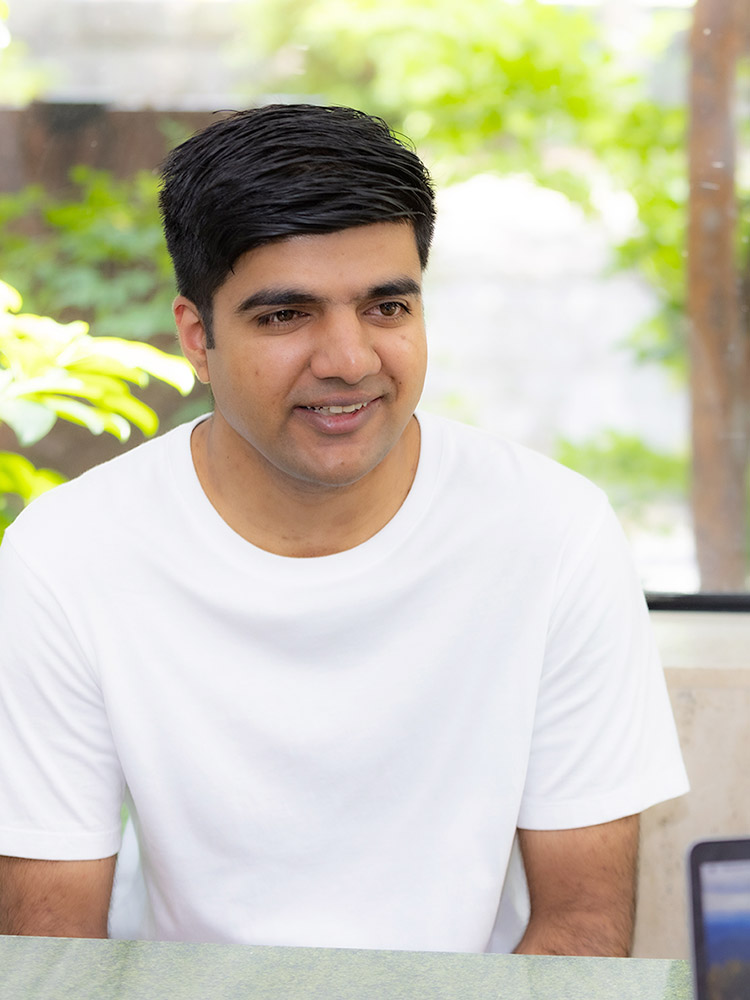
Titov Sergei
Enrolled in FFLC aiming for employment in Japan, Chito is currently learning a variety of skills in the career course.
International Career Course / Russia
How did you learn about FFLC?
My purpose for coming to Japan was to find employment, so I consulted with an agent who recommended FFLC's career course, which is said to have nearly a 100% employment rate. Additionally, I had previously lived in Japan and heard many things about Kyushu, which made me want to live in Fukuoka, so I decided to enroll.
What is your campus life like?
After classes, I don't go home right away. Instead, I stay at school to do my homework and interact with students from other courses. In the lobby, there are students from various courses, so we help each other with homework. Besides homework, I also receive help from a friend I met there for procedures like opening a bank account. I work part-time at a barbecue restaurant. Since there is a restriction of 28 hours per week for international students, I balance my work and studies within that limit.
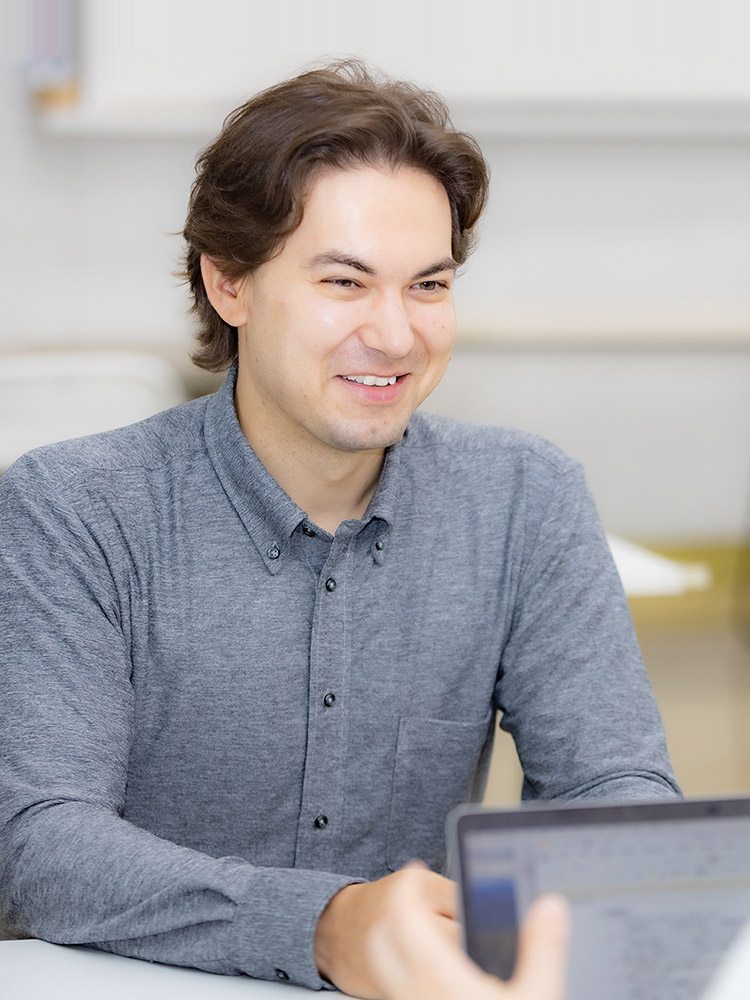
Please tell us more about the career course.
We learn various skills necessary for employment. In addition to classes on manners and trade, we write resumes and practice interviews with teachers, and we can also consult with them about our concerns. This provides comprehensive support for getting a job. In career development classes, we have time to reflect on what we truly want and share it with other students, which helps us deeply consider what kind of job we want. Companies also visit the school and give talks, providing opportunities for students to intern at those companies or get a feel for the working environment, which is very helpful in choosing a job.
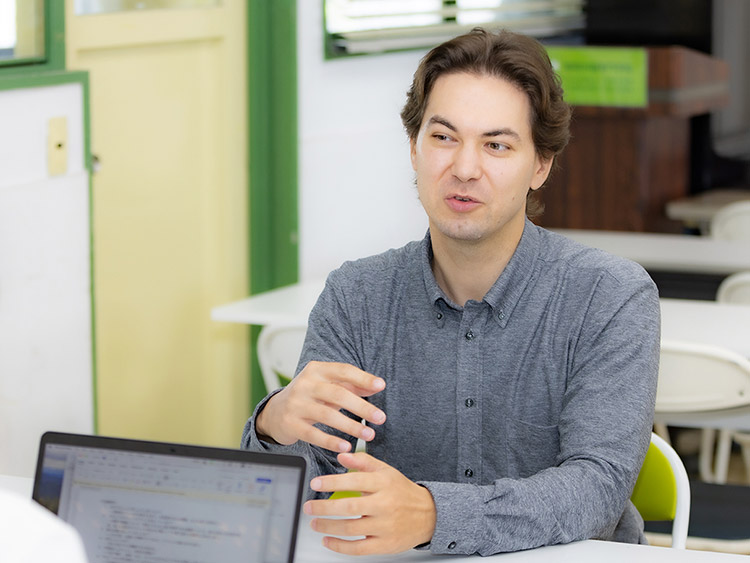
What is your most memorable experience?
I participated in various school events, but the most memorable was the volunteer activity with children that the school posted for recruitment. It was an event where we made a movie with children, who took on the role of directors, wrote their own scripts, and the adults acted according to the scripts to create a movie together. It was a lot of fun.
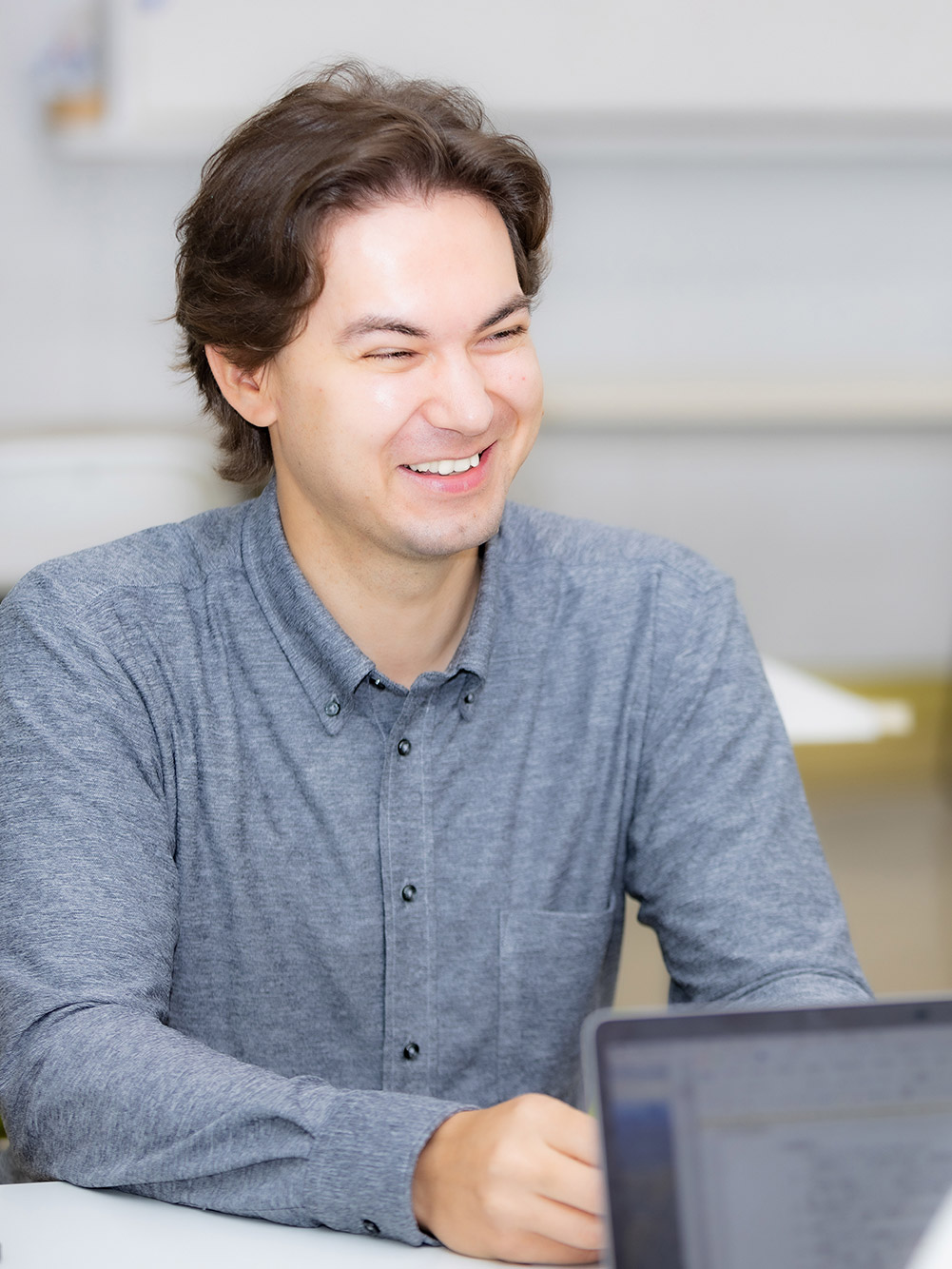
Chaudhary Hari Om
After studying Japanese in Nagoya for a year and a half, Hari enrolled in FFLC. After graduation, he aims to utilize his Japanese skills to secure a job in a hotel.
International Hotel Department / Nepal
How long have you been in Japan?
It's been two years. I studied Japanese in Nagoya for about a year and a half before coming to Fukuoka.
Were there any surprises when you came to Japan?
The way garbage is disposed of was surprising. In Nepal, we dispose of burnable and nonburnable garbage together, but in Japan, everything is sorted. Also, I was surprised that toilets are free everywhere in Japan. I think garbage sorting and free public toilets are great initiatives.
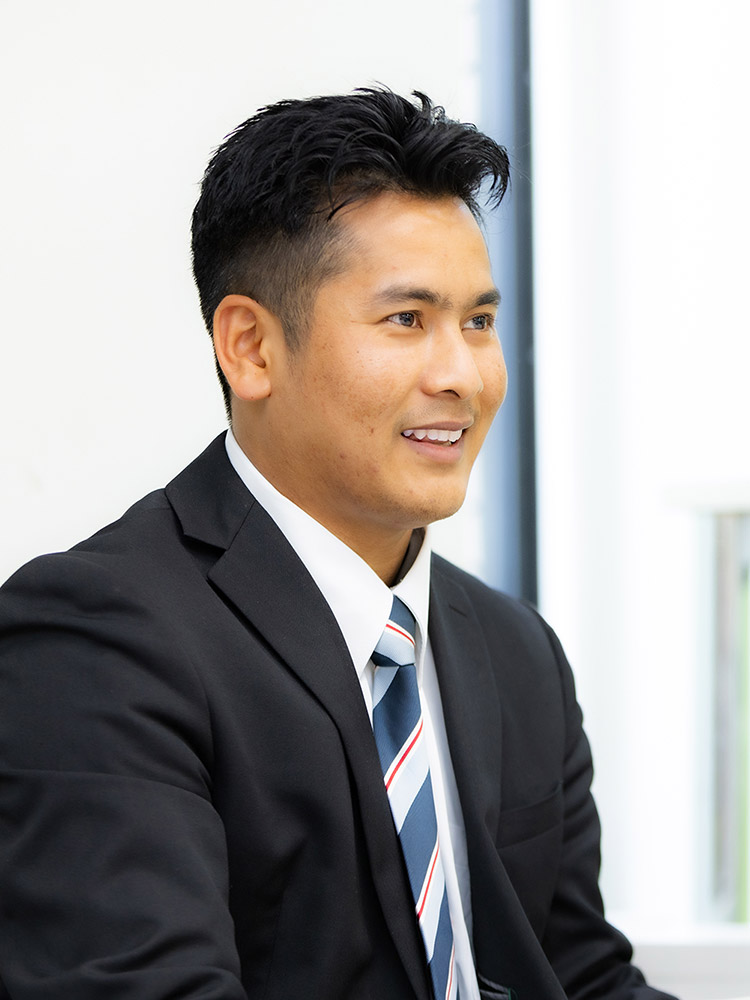
What kind of classes are there in the Hotel Department?
As part of the classes, we have opportunities to visit actual hotels for tours. The whole class once visited Karatsu Seaside Hotel, and it was very enjoyable. Additionally, in classes about tourism, we study hospitality, including banquet preparations and service.
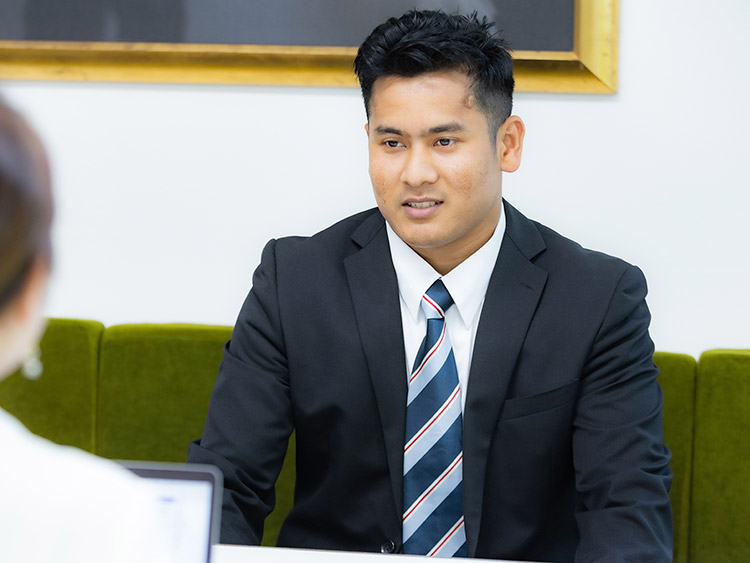
What challenges have you faced since coming to Japan?
I'm currently working part-time at a hotel, but I used to work night shifts for a different job. At that time, I struggled with a lack of sleep, which made attending classes tough. Financially, part-time work is necessary, but balancing it with classes is difficult. When I was looking for my current part-time job, I consulted the school, and they introduced me to a hotel job, so now I have a better daily routine.
Do you have a message for those considering enrolling in FFLC?
I think the most important thing is Japanese language skills. I struggled a lot at first because I didn't understand Japanese. So, I think it's best to study as much Japanese as possible beforehand. The teachers here are all kind, so don't hesitate to ask them anything. Don't give up and do your best!
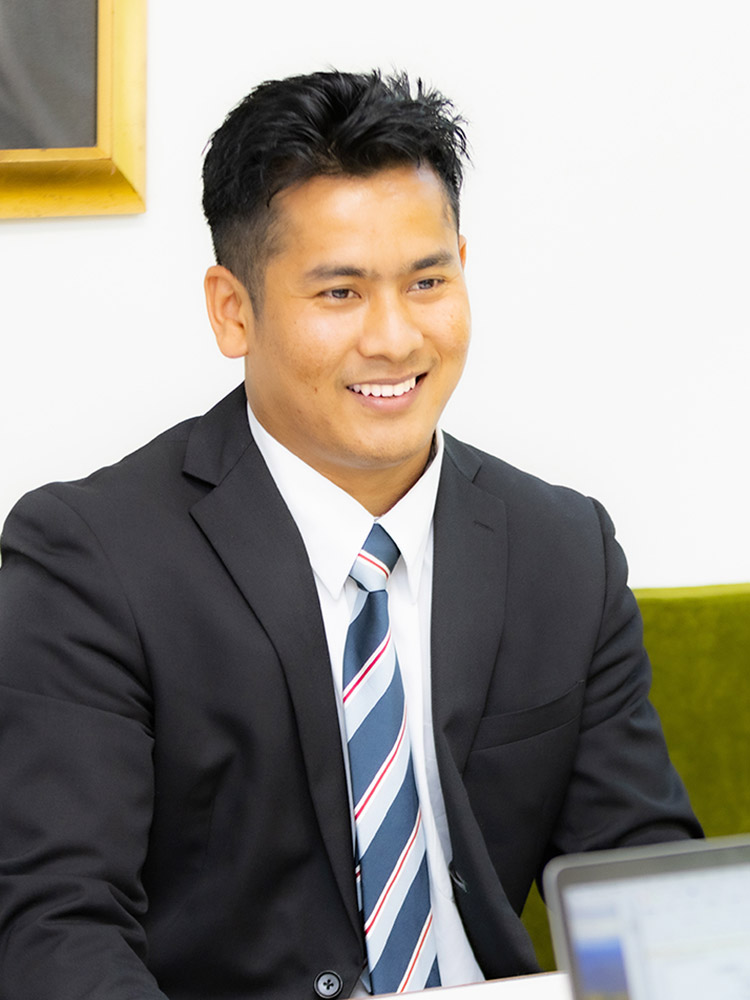
cao thanh long
Initially coming to Japan as an international student, Ron enrolled in FFLC. After graduation, he plans to continue his studies at a university in Fukuoka, aiming to work in Japan in the future, assisting foreign nationals with their daily lives.
Advanced Study 2-Year Course / Vietnam
Why did you decide to enroll in FFLC?
Initially, I planned to come to Japan as an exchange student, but my Japanese language school teacher recommended FFLC's preparatory course if I was considering university admission. As I researched the school, I liked the idea of being able to interact not only with Japanese students but also with other international students, so I decided to enroll.
What is your best memory since enrolling at FFLC?
My best memory is going to Dazaifu and making traditional sweets with everyone from school. It was a joyful and memorable experience.
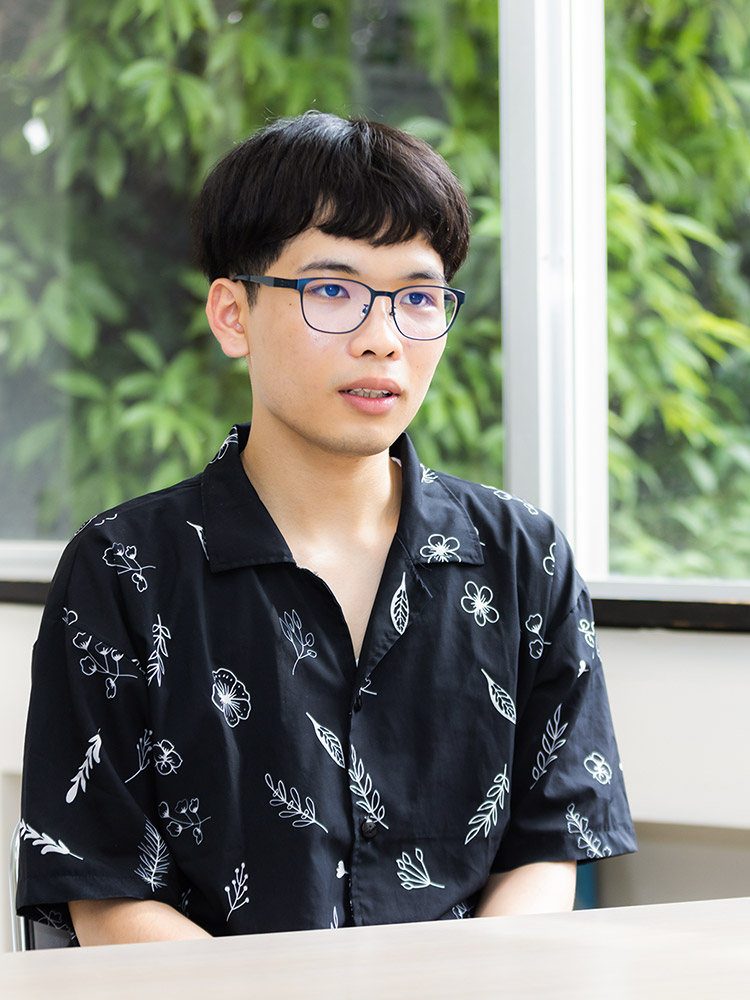
What kind of classes are there in the preparatory course?
The preparatory course includes classes for JLPT (Japanese-Language Proficiency Test), English, and acquiring knowledge for the EJU (Examination for Japanese University Admission). The classes are small, which allows for a lot of communication, which is great. Regarding university admission, we have meetings with our homeroom teacher from the beginning, and we decide on a university by looking at brochures and gathering information about the universities recommended by the teachers.
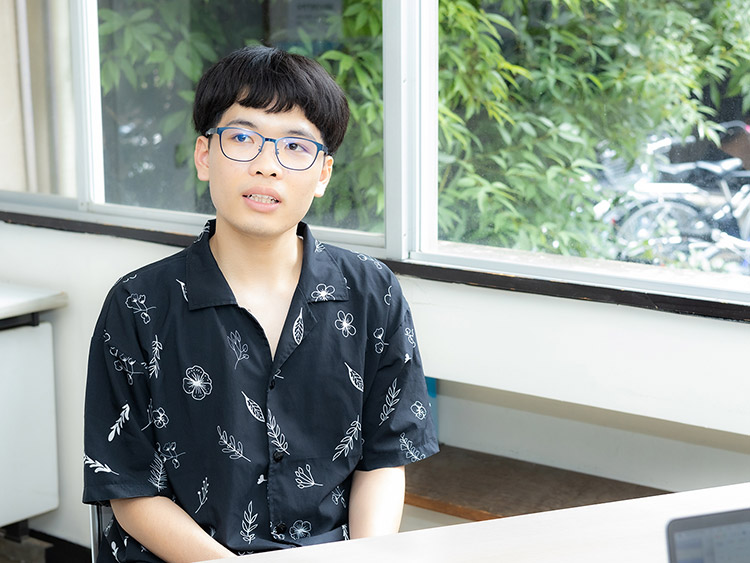
What are your plans after graduation?
I plan to attend a university in Fukuoka. After graduation, I want to work in supporting international students and foreigners living in Japan.
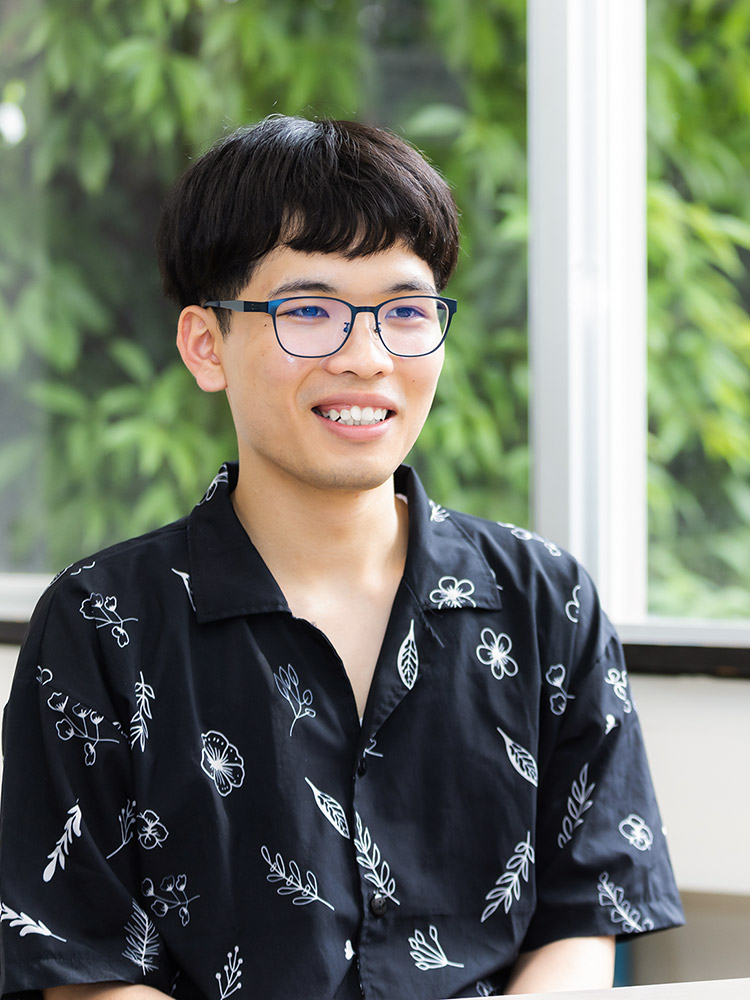
Ryotaro Miyazaki
After graduating from high school in Japan, he enrolled in FFLC to study English. Currently, she is also studying Korean and plans to continue her education at a university in South Korea after graduation.
English Department / Japan
Why did you decide to enroll in FFLC?
In high school, I wanted to work in a hotel and attended open campus events for hotel vocational schools. However, I decided to enroll in this school because it offers the opportunity to broaden my perspective beyond the hotel industry and learn a wide range of subjects using English.
What is your class and school life like?
Most of the people in my class are from Japan, but there are also people from other parts of Asia. The class is not very large, so I feel really close to the teachers, and it creates an environment where no one feels left out. Recently, I have also been studying Korean, and I got to know a Korean person who is in the advanced course at the school. We walked together partway home, and gradually we became friends. Now we even study together at cafés. If you want to speak a certain language, you can just go to the school lobby and easily meet someone from that country.
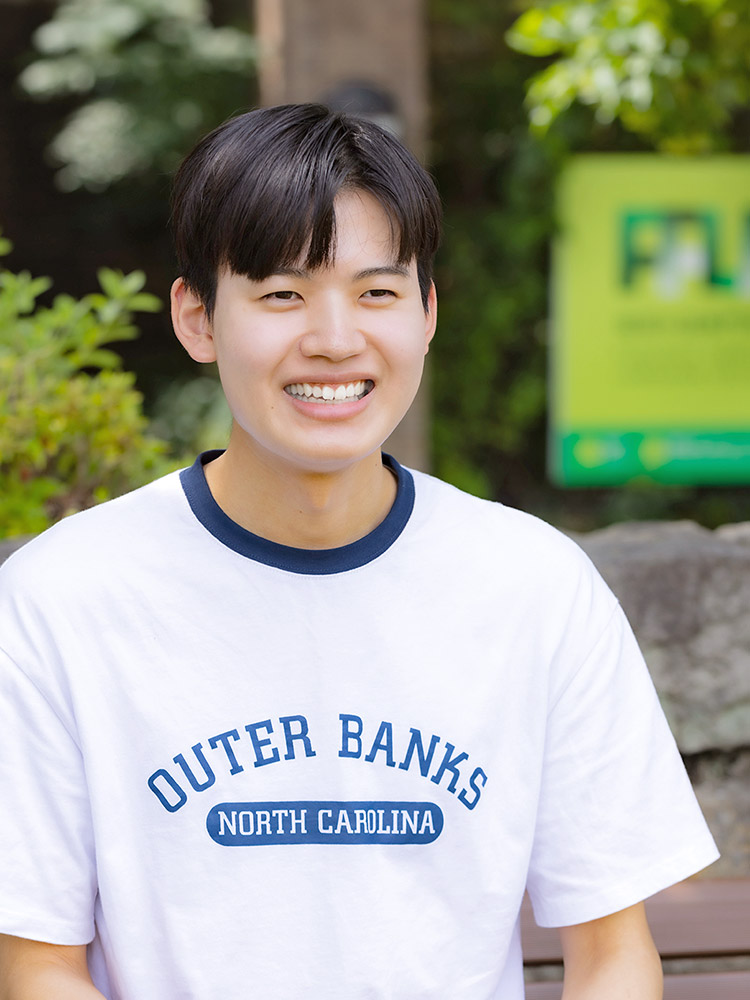
What do you find challenging?
Completing the assignments in each class is difficult. However, I believe that homework definitely improves your English skills, and if you do what you need to do, you will improve. Sometimes I procrastinate, but I regret it when I do. I took part in an English speech contest as one of the representatives of my class, and I gave a speech in English in front of many people. I was chosen for second place, and I was really happy.
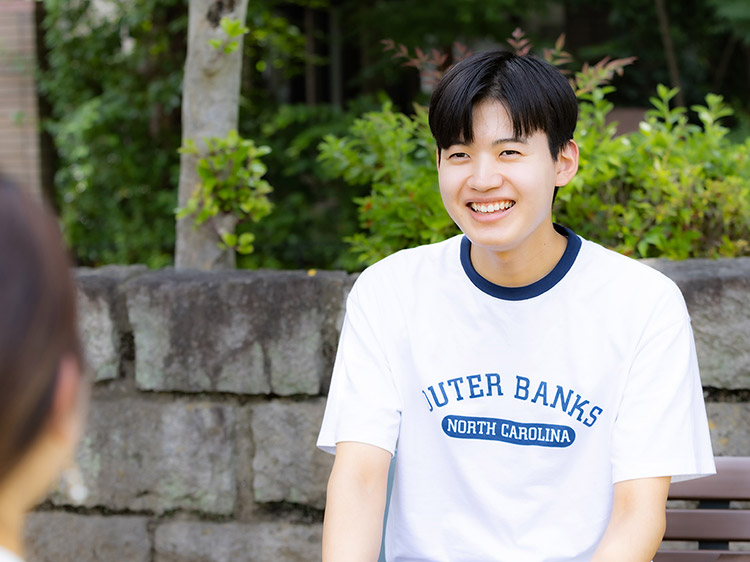
What are your plans after graduation?
Initially, I was thinking about getting a job, which is why I joined the career class. However, now I am considering transferring to a university in Korea. I saw on the school’s website that it's possible to transfer to an overseas university. When I told the teacher about my change in plans, they immediately said they would contact a former student who had transferred to a university in Korea. You don't have to get a job just because you’re in the career search class, as the school is flexible in supporting what you really want to pursue in the future.
